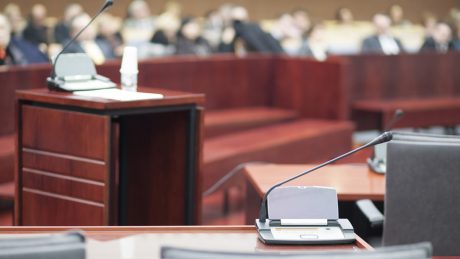As consumers, we are often encouraged to shop around for the best deal or try before we buy, but this is not the case when it comes to expert witnesses. Courts take a dim view of parties who seek to swap experts. It is well established that the court will impose conditions on a party seeking to change experts where that party is suspected of “expert shopping”.
Tom Elsey examines the recent decision in Rogerson (t/a Cottesmore Hotel, Golf and Country Club) v Eco Top Heat & Power Ltd, which considered the question of expert shopping.
The practice of substituting one expert for another whose opinion a party prefers has been consistently deemed undesirable by the court. In an attempt to restrict expert shopping, the court will often require the party seeking to change to a new expert to waive privilege over documents relating to the previous expert. In effect, the court provides the party with a choice: if a party wishes to rely on an alternative expert, they must pay the price of waiving privilege in relation to the original expert. Therefore, before deciding whether or not to substitute an expert because their opinion is considered unsupportive, parties should give careful thought to whether this is a price worth paying.
Rogerson v Eco Top Heat & Power
The recent decision in Rogerson (t/a Cottesmore Hotel, Golf and Country Club) v Eco Top Heat & Power Ltd [2021] EWHC 1807 (TCC) serves as a useful reminder of the principles and authorities on expert shopping. Mr Alexander Nissen QC, sitting as a judge of the High Court, considered in his judgment the question of how far back in time the court can look to impose conditions on substituting an expert. He also looked at the circumstances in which an expert is changed for objectively justifiable reasons.
In Rogerson, the defendant had instructed an expert to investigate the cause of a fire at the claimant’s premises before the pre-action protocol had commenced. This expert met the claimant’s expert on a site visit before the claimant had issued a letter of claim or the proceedings. In advance of the first costs and case management conference, the defendant sent the claimant proposed directions, which included a provision that the defendant have permission to call a different expert regarding the cause of the fire. The claimant objected and said the proposed substitution of the prior expert was, in effect, expert shopping.
Where a party seeks permission to rely on an alternative expert pursuant to Civil Procedure Rule (CPR) 35.4, the court has jurisdiction to make an order imposing a condition on that party’s change of expert. In this case, the question arose as to how far back this jurisdiction should be exercised. The judge, citing Edwards-Tubb v Wetherspoon [2011] EWCA Civ 136, said it is clear in law that this jurisdiction can attach to privileged pre-issue reports or other expressions of opinion as well as post-issue reports. However, this jurisdiction does not apply where a party has elected to take pre-protocol advice at his own expense unless some unusual factor is present. As an example of an expert falling outside the court’s jurisdiction under CPR 35.4, he cited an expert consulted at an early stage to advise privately on the viability of a claim who is not instructed to write a report for the court.
In Rogerson, the defendant sought to argue that the original expert was instructed in the immediate aftermath of the event to provide private advice prior to pre-action protocols arising; he had not produced any written report to the defendant, only providing a view on the cause of the fire in a privileged discussion with the solicitors and recorded in an attendance note.
The judge’s reasoning
The judge considered the circumstances of the original expert’s appointment and was satisfied that the expert had been appointed with a view to him becoming the defendant’s expert pursuant to CPR35. In reaching this decision, the judge took into account the following:
- The defendant failed to provide any evidence of the terms upon which the original expert was engaged or for what purpose. This lack of candour on the defendant’s part meant that the judge treated its submission that the original expert’s role was limited with a degree of scepticism.
- While a letter of claim had not been sent, there was litigious correspondence, and both parties understood that litigation was in prospect.
- There was a considerable level of liaison and engagement between the claimant’s expert and the defendant’s expert, such as a joint site visit.
These features were sufficiently unusual for the court to apply conditions for permission to rely on the alternate expert. The judge found that an inference could clearly be drawn that there was expert shopping or at least the appearance of this practice.
A fine line
In his judgment, the judge commented that there was a sliding scale between flagrant expert shopping on the one hand and an unexpected need to change the expert for objectively justified reasons on the other. Where the circumstances are closer to the former, the court is more likely to impose a “high price”, such as waiving privilege in relation to the previous expert. However, if an expert is changed for objectively justifiable reasons, such as illness or retirement, the court would be more likely to impose less onerous conditions, if any.
Any conditions imposed by the court will not necessarily be limited to waiving privilege in a draft report prepared by the original expert. The court’s power extends to any document in which the expert has expressed their opinion on the issues in the case. Therefore, in Rogerson, the court ordered that a redacted version of the attendance note containing the expert’s view on the cause of the fire be provided to the claimant.
This case serves as a timely reminder that the court will be unimpressed where it finds a party has been expert shopping. If a party plans to instruct an expert pre-action to advise on the merits of a case but is unsure whether this person should be a CPR 35 expert, care should be taken to limit these instructions to these specific initial matters and make clear they are not advising as a CPR 35 expert. The price to be paid by that party can indeed be high. It should be borne in mind that the court may not just order the disclosure of draft reports but could also require all materials containing an expert’s opinion to be provided.
You can find further information regarding our expertise, experience and team on our Commercial Litigation pages.
If you require assistance from our team, please contact us or alternatively request a call back from one of our lawyers by submitting this form.
Subscribe – In order to receive our news straight to your inbox, subscribe here. Our newsletters are sent no more than once a month.





